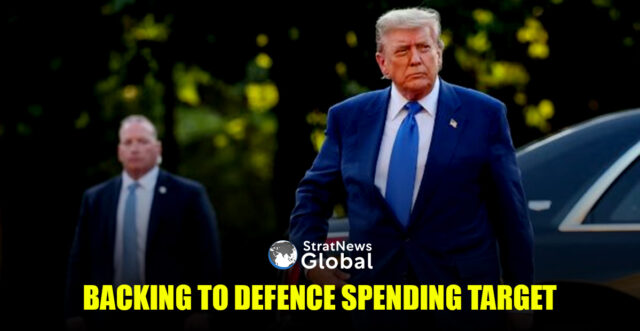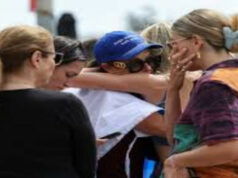NATO leaders are meeting in The Hague on Wednesday for a summit shaped around U.S. President Donald Trump’s priorities, as European allies aim to ease concerns about his commitment to the alliance by agreeing to increase defence spending.
The summit is expected to endorse a higher defence spending goal of 5% of GDP – a response to a demand by Trump and to Europeans’ fears that Russia poses an increasingly direct threat to their security following the 2022 invasion of Ukraine.
NATO officials are hoping the conflict between Israel and Iran, and the U.S. bombing of Iranian nuclear sites at the weekend, will not overshadow the gathering, hosted by alliance Secretary General Mark Rutte in his home city.
Trump’s Threats
Trump has threatened not to protect NATO members if they fail to meet spending targets and he raised doubts about his commitment again on his way to the summit by avoiding directly endorsing the alliance’s Article 5 mutual defence clause.
Speaking to reporters aboard Air Force One, he said there were “numerous definitions” of the clause. “I’m committed to saving lives. I’m committed to life and safety. And I’m going to give you an exact definition when I get there,” he said.
The new target – to be achieved over the next 10 years – is a big increase on the current goal of 2% of GDP, although it will be measured differently. It would amount to hundreds of billions of dollars in extra annual spending.
Countries would spend 3.5% of GDP on core defence – such as troops and weapons – and 1.5% on broader defence-related measures such as cyber security, protecting pipelines and adapting roads and bridges to handle military vehicles.
All NATO members have backed a statement enshrining the target, although Spain declared it does not need to meet the goal. Madrid says it can meet its military commitments to NATO by spending much less – a view disputed by Rutte.
But Rutte accepted a diplomatic fudge with Spanish Prime Minister Pedro Sanchez as part of his intense efforts to give Trump a diplomatic victory and make the summit go smoothly.
Unusual Insight Into Summit Diplomacy
Trump gave an unusual insight into those efforts on Tuesday by posting a private message in which Rutte lavished praise on him and congratulated him on “decisive action in Iran”.
“You will achieve something NO American president in decades could get done,” Rutte told Trump.
“Europe is going to pay in a BIG way as they should, and it will be your win.”
To satisfy Trump, Rutte has also kept the summit and its final statement short and focused on the spending pledge.
The text is expected to cite Russia as a threat and reaffirm allies’ support for Ukraine but not dwell on those issues, given Trump has taken a more conciliatory stance towards Moscow and been less supportive of Kyiv than his predecessor, Joe Biden.
Ukrainian President Volodymyr Zelenskyy had to settle for a seat at the pre-summit dinner on Tuesday evening rather than a seat at the main meeting on Wednesday, although Trump said he would probably meet with Zelenskyy separately.
Zelenskyy’s plans for a meeting with Trump in Canada last week were dashed when the U.S. president left a G7 summit early, citing a need to focus on the crisis in the Middle East.
Zelenskyy and his aides have said they want to talk to Trump about buying U.S. weapons including Patriot missile defence systems and increasing pressure on Moscow through tougher sanctions.
The Kremlin accused NATO of being on a path of rampant militarisation and portraying Russia as a “fiend of hell” in order to justify its big increase in defence spending.
(With inputs from Reuters)





